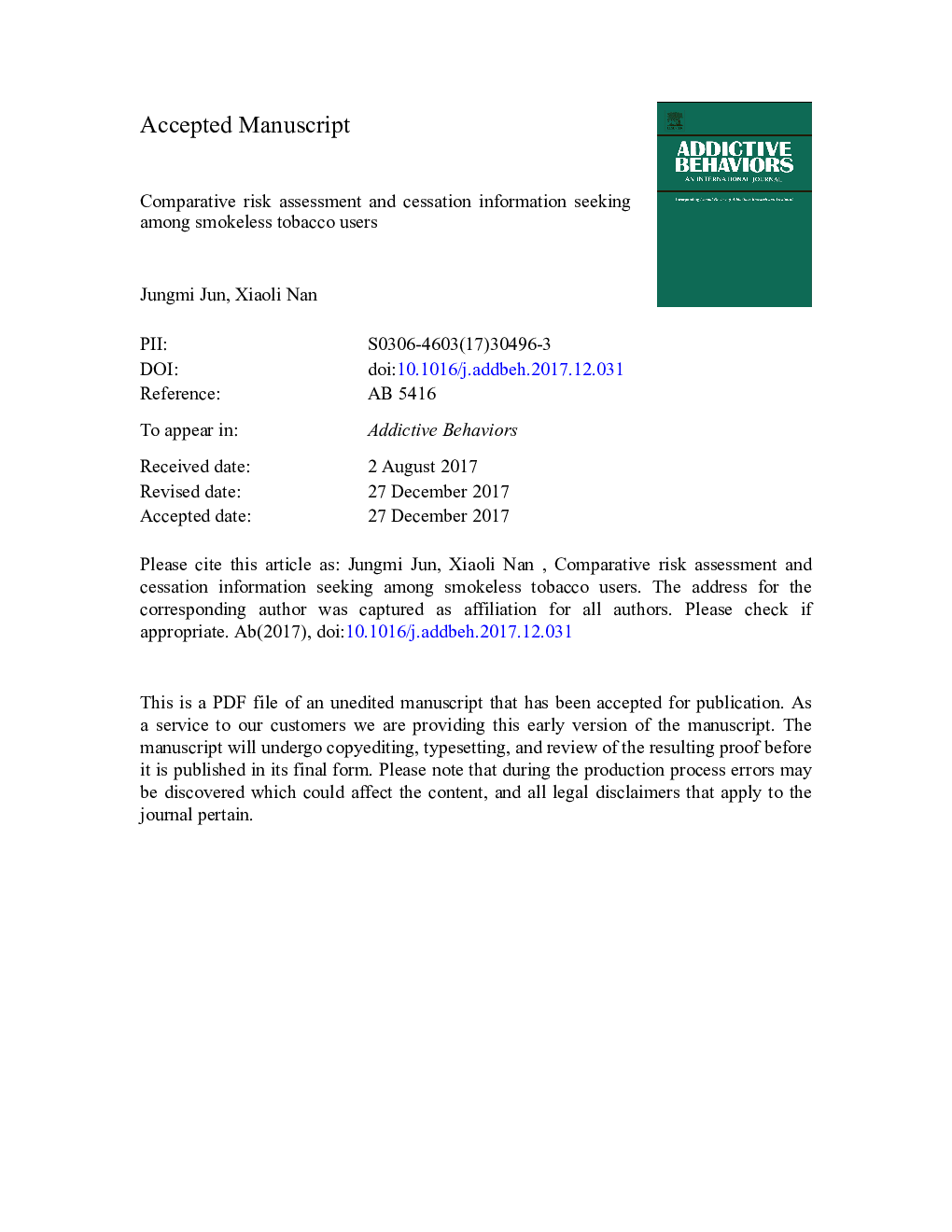| Article ID | Journal | Published Year | Pages | File Type |
|---|---|---|---|---|
| 7259269 | Addictive Behaviors | 2018 | 30 Pages |
Abstract
Optimisic biases may negatively influence cessation behaviors not only directly but also indirectly by influencing an important moderator, cessation information-seeking. Future interventions should prioritize dispelling the comparative optimism in perceiving risks of smokeless tobacco use, as well as provide more reliable cessation information specific to smokeless tobacco users.
Related Topics
Life Sciences
Neuroscience
Behavioral Neuroscience
Authors
Jungmi Jun, Xiaoli Nan,
